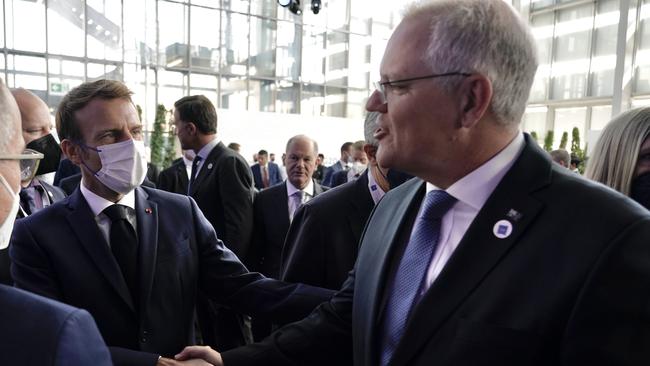
But France could yet prove useful to Australia’s submarine program, and the world’s nuclear non-proliferation hawks, who worry that a nuclear Australia (even if only in the ocean) presents a dangerous precedent.
“FAUKUS” has an inauspicious ring to it, as an update to the security pact signed between Australia, the UK and US, yet French naval nuclear reactors have an advantage over those in the British and American submarines – they can’t be used to develop nuclear weapons.
The new AUKUS pact, which will see Australia acquire at least eight nuclear-powered submarines in coming decades, will make it easier for renegade governments without nuclear weapons to develop them under the cover of a “nuclear-powered submarine program”.
Australia, if it ever obtains a nuclear-powered fleet, will be a curious case: the first non-nuclear nation (not even for electricity) with eight highly enriched nuclear reactors chugging around the world’s oceans inside submarines.
Unlike French (and Chinese, in fact, but don’t expect much help there) submarines, which use low-enriched uranium to power naval reactors, the British and Americans use the highly enriched sort, which means they never have to be refuelled, so they can stay underwater for decades; French subs need refuelling every decade or so.
No one thinks Australia would hack open a new submarine to divert potentially explosive material into a weapon, but other countries might not be so scrupulous.
It takes mere weeks to make nuclear weapons once a country has highly enriched uranium to hand. And they wouldn’t even need to ruin a perfectly good hull if they were enriching their own uranium, purely – hand on heart! – for naval propulsion purposes rather than creating weapons.
Non-proliferation treaties drawn up in the late 1960s left a loophole whereby nuclear reactors to propel naval vessels could be exempted from routine inspection by the International Atomic Energy Agency. After all, it’s not practical to inspect secretly located submarines, and the treaties weren’t intended to rule out non-explosive uses of nuclear energy.
Australia is on track to be the first to apply for an exemption.
“I’m quite concerned the agreement really blows a hole into the longstanding US position of minimising the spread of highly enriched uranium, for which it’s worked so hard for many years,” Rose Gottemoeller, former deputy secretary of NATO, tells Inquirer.
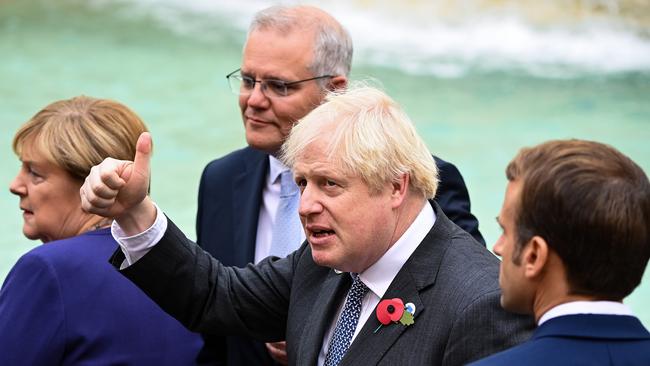
Enriched uranium is available on the international market, produced in a handful of supervised locations around the world. No country needs to enrich its own uranium for submarines – but governments in wartime might not be able to rely on supply.
Seven former senior US government officials have argued, in a letter to President Joe Biden in October, that AUKUS would have a “serious negative impact” on nuclear non-proliferation efforts and create a “monitoring nightmare” for the IAEA.
Former UN chief weapons inspector Hans Blix had a hard enough time with visiting land-based reactors in the early 2000s; imagine trying to track multiple weapons-grade reactors, spread throughout the world’s oceans, rarely returning to port.
These aren’t just theoretical concerns. Iran, which has been trying to develop nuclear weapons for years, has already at the UN started using AUKUS to justify its nuclear enrichment program (even though it’s years away from an ocean-ready nuclear submarine).
“If Iran feels they can try to exempt nuclear material using the loophole and not incur intolerable backlash as a result of AUKUS, they will; it’s all about precedents,” says James Acton, a nuclear policy specialist at Carnegie Endowment for International Peace.
Former US president Donald Trump declined South Korea’s request in 2020 for nuclear-powered submarines; could Biden so easily deny them now? If Australia feels threatened by China, imagine living next to China and North Korea.
Robert Einhorn, a former State Department proliferation expert, says the US should offer a similar deal to Korea, partly satisfying Seoul’s longstanding desire for some sort of nuclear capability.
“Sixty-five per cent of the South Korean public say they would like nuclear weapons, but we shouldn’t want them to have their own enrichment capability,” he says. “The AUKUS deal has taught the world that diesel is second class; if you’re cool you want nuclear subs now.”
This is where France comes in.
“France should be invited to join AUKUS,” says Acton. “With the UK and the US merging their own designs, it should be possible to also integrate a French reactor.”
The upcoming 10th Nuclear Non-Proliferation Treaty Review Conference, scheduled for January, might eye a clean, simple way of plugging a potential leak in the non-proliferation landscape.
Outlaw the possession of nuclear submarines powered by highly enriched uranium for states that don’t already possess them. In this case, the IAEA would simply need to check that land-based nuclear reactors were only producing low-enriched uranium.
In this scenario, AUKUS could ultimately railroad countries such as Brazil, mulling over a high- or low-enriched uranium propulsion technology for its interminable nuclear submarine program, into choosing the safer option. John Carlson, an Australian nuclear policy expert at the Vienna Centre for Disarmament, plays down the risks of nuclear proliferation, pointing out how “extremely expensive and complicated” nuclear submarines are, making them an unrealistic ruse for a secret nuclear weapons program.
“Look at the Brazilian nuclear submarine project – they’ve been pursuing this for decades, and they’re still at least a decade away even with French help,” he says.
Australia’s program leaves other headaches too.
“I don’t see how Australia cannot build a training nuclear reactor because there might not be enough space to train foreign crews in the UK or US on demand,” says Acton, suggesting that it would have to be completed years before the nuclear-powered submarines arrived.
Moreover, how can Australia have a new training reactor, nuclear submarines in the pipeline and an existing research facility at Lucas Heights, yet maintain a ban on nuclear energy? Then there’s the question of nuclear waste.
China, naturally, has been arguing AUKUS risks nuclear proliferation: the arrangement strengthens Australia’s hand in a region increasingly threatened by China. But that doesn’t mean the argument is necessarily wrong.
Tweaks to global precedents could have profound effects down the track, when governments’ stripes, and geopolitical realities, have changed.
Brazil and Argentina, under military rule, both conducted nuclear weapons programs, which they later dumped.
The US in the 1980s discovered that South Korea had been secretly pursuing a nuclear enrichment program. Emeritus ambassador Henry Kissinger gave them an ultimatum: back off or lose the US alliance.
They did; but other nations who don’t care for the US won’t be so easily persuaded. Emerging giants Nigeria and Indonesia, for instance, might want nuclear-powered submarines as well.
“It’s a brilliant stroke strategically, Australia needs more reach, but it needed to be a three-cornered billiard shot to take into account the non-proliferation issues and allied France,” says Gottemoeller.
The reactors aren’t the most time-consuming part of submarine construction. Could Australia put French reactors into its British-American submarines? There’s no precedent, but there’s no precedent for building nuclear submarines in South Australia, Connecticut and Devonshire, either.
Few are likely to agitate for a full-blown FAUKUS, but France could still prove useful to Australia’s submarines, as well as to global non-proliferation efforts.


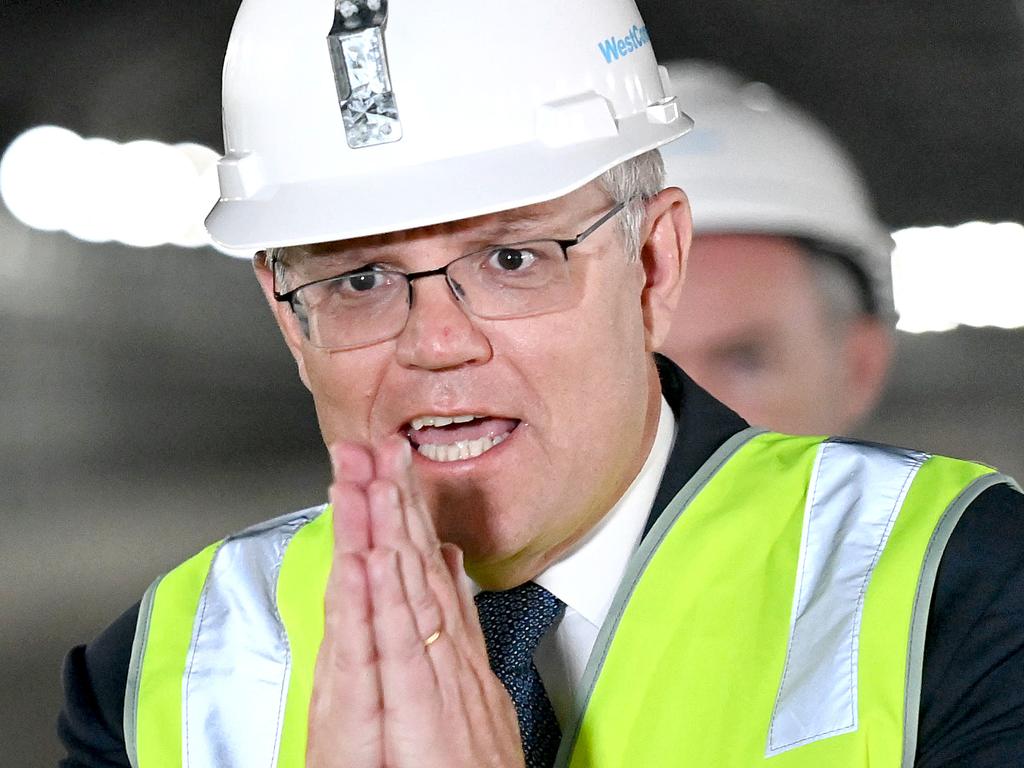
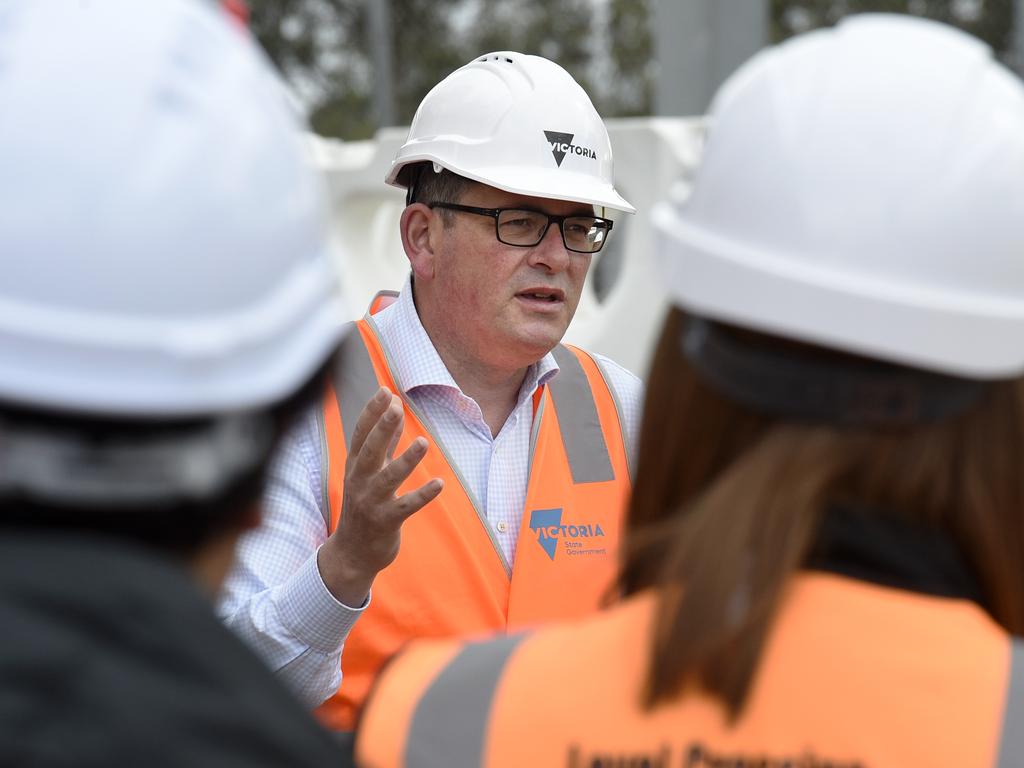
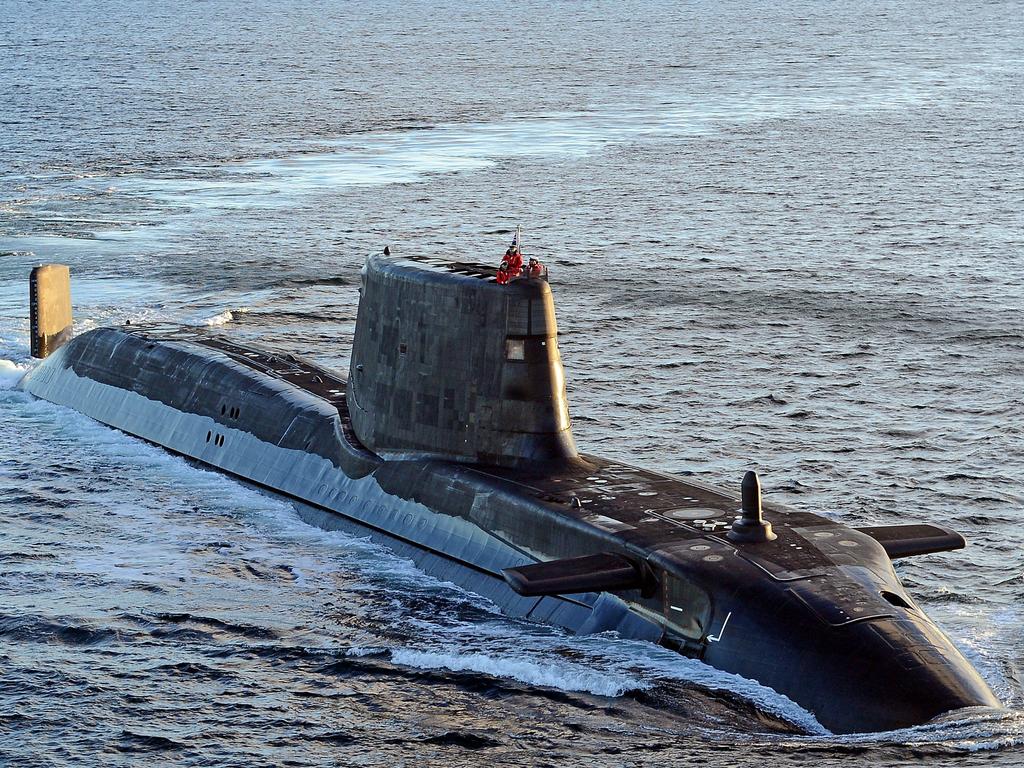


Rapprochement between Australia and France is likely some way off, given the very public kerfuffle in Rome and Glasgow this week.